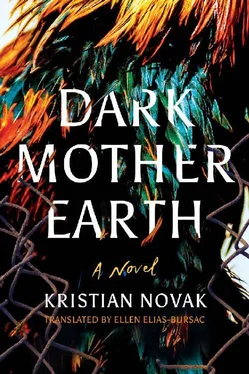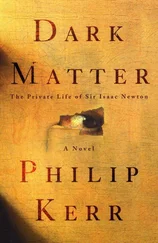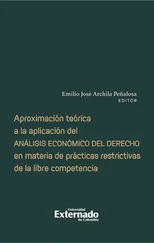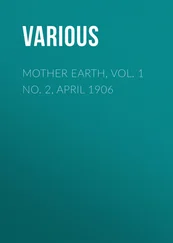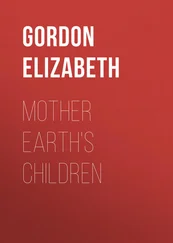He walked into the apartment, locked the door, and took out his cell phone with his left hand because he was clutching the pad he’d been writing on in his right. He called his sister’s friend, said, “It’s Matija,” and, without waiting for a response, went on:
“I thought I’d killed them. That’s why I forgot. Things you’ve forgotten bide their time. They keep an eye on you, poke each other in the ribs, and snicker softly so as not to disturb the sanctity of the delusion. They only start getting louder when you begin to stagnate, when there’s no forward movement, and that’s when they go after you, seething because you’ve forbidden them from coexisting with all the new things you neatly pack into the storage unit known as your life. I can finally see them clearly, and I’m walking toward them. Still… I can’t help but wonder… what if this is just another lie? Well, even if it is, what recourse do we have? We only settle for a lie that’s good enough.”
The voice on the other end of the line tried several times to interrupt the groggy, insular flow of Matija’s words. What made sense to Matija was just a garbled string of syllables to the person on the other end of the line. But that he was speaking backward didn’t matter. Because he was writing forward.
I turn and see a gallery of familiar faces, like portraits I painted fast, with no skill, in the heat of the moment when I thought I’d have them with me forever. When the models were right there in front of me, I slopped on the paint, thinking I’d refine the faces at some point, so none of them would ever get away, but every single one of them is lost. Now I suddenly wish I could rework them all, if only I could have one of my canvases back so I could finish it properly. I’m sure I’d make my one and only masterpiece, if only I could have the sketch back.
And no, that’s not why I’m writing, I’m not that rude. I’m writing because now I think I can tell you the one story about myself you wanted to hear. You’ve earned it. I’m writing to you, to myself, to the stranger I’ve been carrying around inside me all these years, to everyone who has been touched by this, whether living or dead or somewhere between… And I’m burning to tell all of us—whether or not I’m to blame—that I’m sorry, so goddamn sorry. This is my excuse for confessing. If this story is about anything, it is about a time when I knew courage, seeking, fear, and ultimately—always—love. Now I feel as if I have been loving only in fits and starts with an imagined, alien self, hoping to gloss over the dark, accursed part of me that no one (except you, a few times) has ever seen. And that’s the only part of me that’s able to love fully. Only that part can.
It would be impossible to describe the strange occurrences of my childhood, some of them truly bizarre, without first recounting a legend told by the people living in the region of Croatia known as Upper Međimurje. There in the North, the older folks often told a story about how, in the beginning—when the world was still light and young and made so much more sense—God gave each of his children one part of Earth. He divvied it all up, save one little chunk that he kept for himself. The loveliest and greenest place: a highland with rolling forested hills, redolent with the fragrance of resin and green grapes, and a lowland with meadows, hayfields, and rich tillage. These lands were divided from the rest of the world by two tame, clear-running rivers: the Drava to the south and the Mura to the north. Satisfied, when God saw he’d finished his work, he breathed a sigh of relief and sat down on Mohokos, the highest peak in the beautiful terrain. He soon felt something wriggling between his toes. These were the smallest but also the hardest-working and friendliest people who, not wishing to disturb their good Father, had begun to till the fields of God’s land. The only one who spoke was a child, who whispered: “Dear Father, dear God, how will you reward us for our loyal service?” God was sorry he’d forgotten the dearest and humblest of all of his children, so he gave them the piece of Earth he’d set aside for himself. And so it was from that day forth that this gentle place was known as Međimurje, meaning “land lying between waters.” It was home to a peaceful people who never left their little piece of earth except when forced to by hunger and privation.
However, peace and prosperity don’t last forever. From the north came big, wild men, ogres, with no home of their own (for they’d never been God’s children). Mercy was foreign to them; they had long stringy hair that had been tangled and matted by sweat and dust, their eyes were bloodshot, their bodies were caked in mud, and their arms were crusted to the elbow with the gore of people they’d slaughtered in their aimless wanderings. They rode giant horses and astride them forded the Mura. Ever since that day, the river had become murky and was rife with dangerous eddies. This was because they’d rinsed the blood of the innocents from their arms and their swords and their axes, and turbid and rusty the water remained; the ruts gouged out by their immense horses in the riverbed had made the currents unpredictable and treacherous. The Mura often shifted course, as if impelled by the uneasy eternal sleep of the innocents. In its whirlpools and sudden drops in depth, many had disappeared, and many a parent mourned a child who’d been swept away by the river.
The ogres traversed the plain of fields and orchards where the humble people lived, and settled in the forested hills near the village. For they shied from the sun and the light of day, while the local folks loved it and lived near the river. At first the folks were afraid of the newcomers, whose language they didn’t understand, but they welcomed their guests because their good Father had taught them to be generous with every living creature. They gathered what they had and greeted the newcomers at the forest’s edge with wine and honey. The newcomers took what was offered, but gave nothing back.
The ogres didn’t wait for the villagers to come again, but came out of the forest and took whatever they desired. Every household offered up something, they shared freely what God and the fertile fields had given them. An old woman even gave them candles she’d made herself. The people of Međimurje had learned how to make candles from the first Christians, who used them to bring light to the underworld so souls wouldn’t be cast adrift in the dark. One of the ogres grabbed a candle and bit down on it, and saw this was not something to be eaten, so the grandmother showed him how to use it. The ogres were pleased—now they could come down at night from the hills and easily take from the orchards and farmyards. After that, lights could be seen flickering in the darkness among the distant trees in the place where the ogres camped, and the local people watched the forests with growing apprehension.
The village’s oldest grandfather showed the ogres how to bake bricks and build walls of mud. Soon their wild forest encampment grew into a fortress, a grim fortress, and at night the screams of the ogres reached the village as they worshipped their cruel gods.
One day the most beautiful girl from the village, seeking respite from her work in the field, went into the forest to find a cool, shady spot. The older villagers had warned her not to go near the trees, but she believed no living creature would harm another without a reason. Seven ogres found her and ran her through with spears. They juggled her head all the way from the forest to the village and dropped it at her mother’s feet. For three days and three nights, her mother wept bitter tears. The third night she died of grief, and they buried her by the river, just downstream from where the women scrubbed their laundry. The old people say that even her dead eyes wept, and when the next morning dawned, a new branch of the river had sprung from her tears, which has been known ever since as Grieving Mother Mura.
Читать дальше
